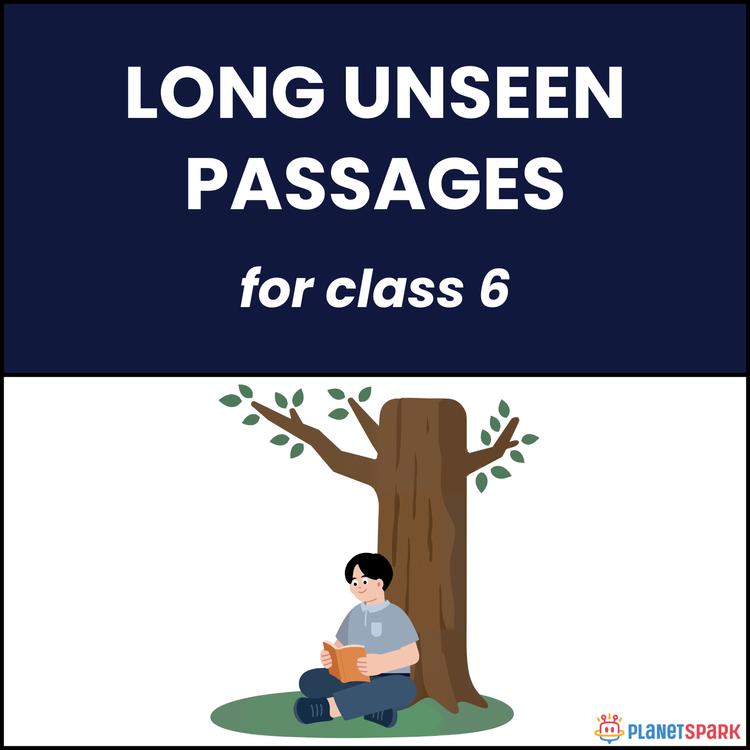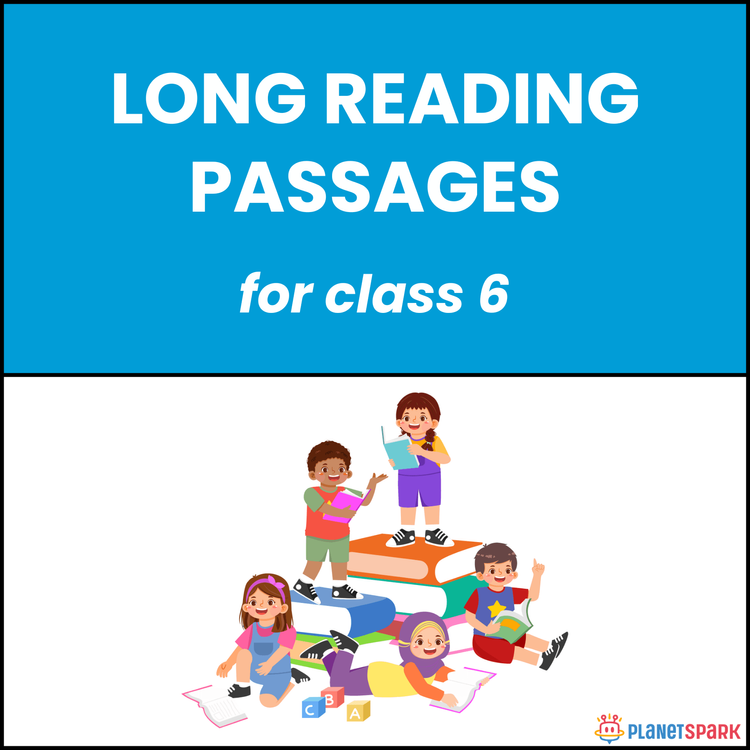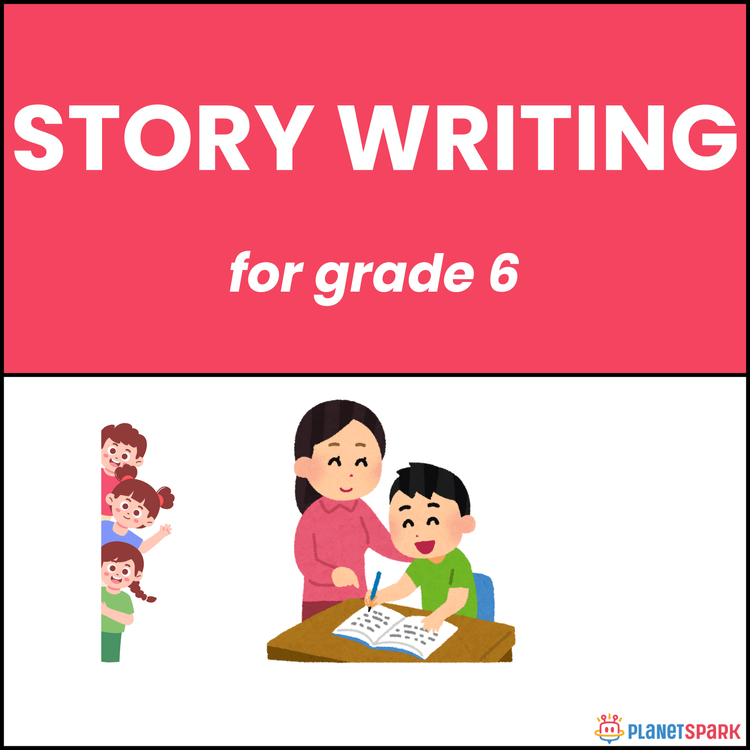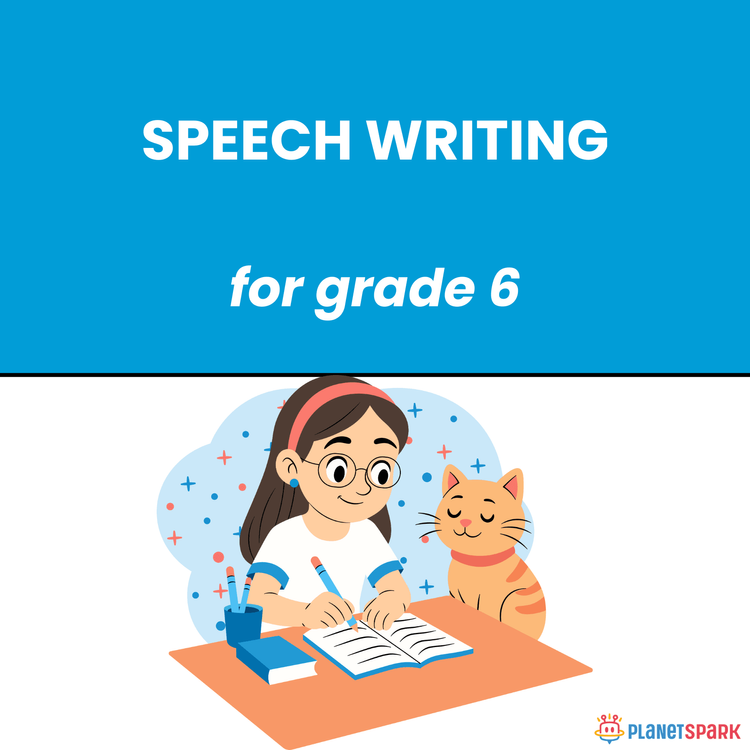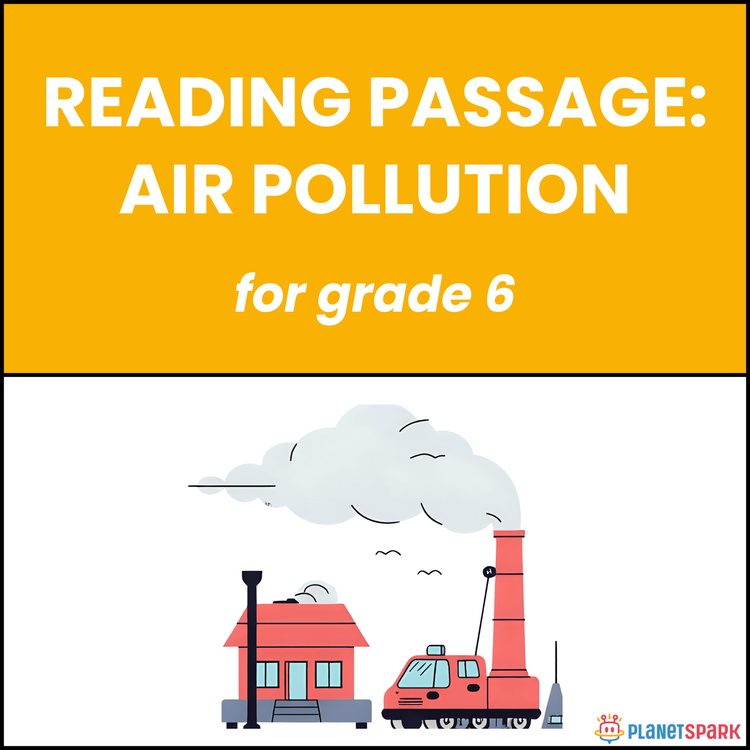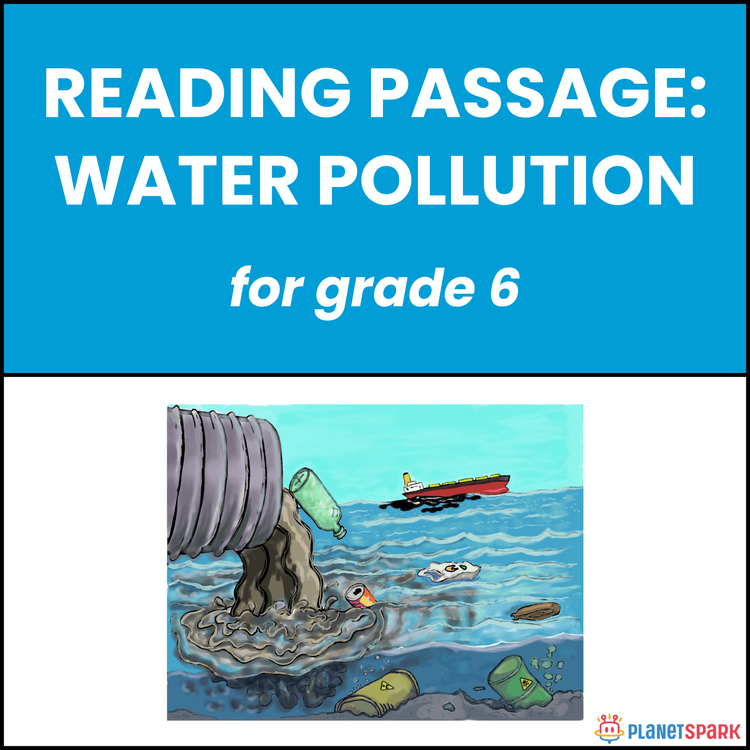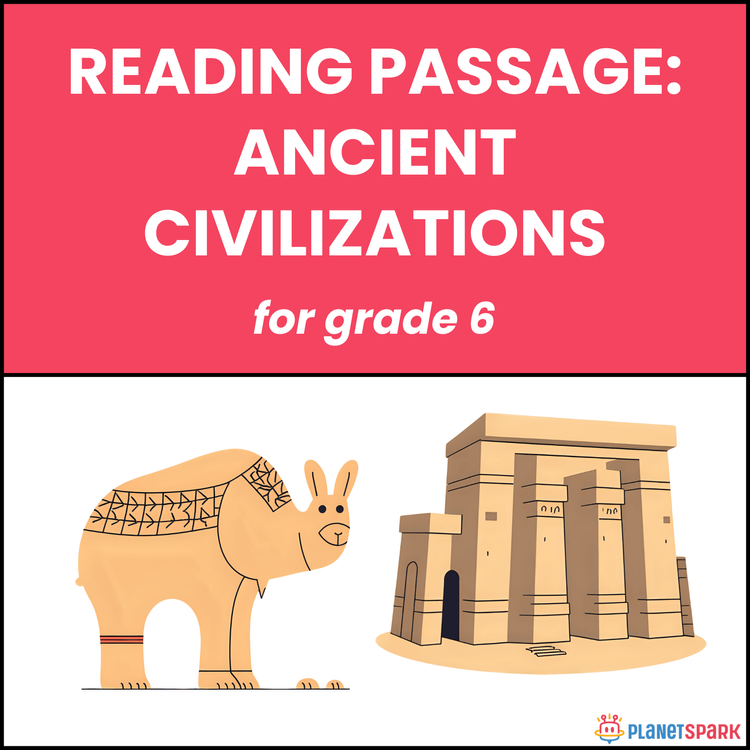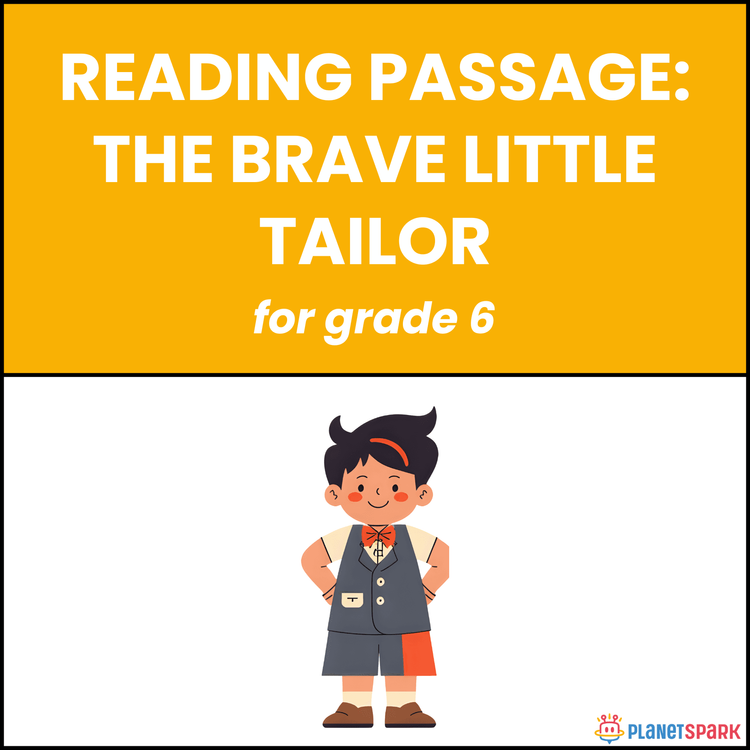The Elephant’s Child (Kipling, abridged)
Class 6EnglishSpoken EnglishFree DownloadPDF
Neelam BooraVisit Profile
I’m an enthusiastic English educator at PlanetSpark, passionate about helping students build confidence and communicate effectively. I strive to make every session engaging, inspiring, and full of meaningful learning experiences.
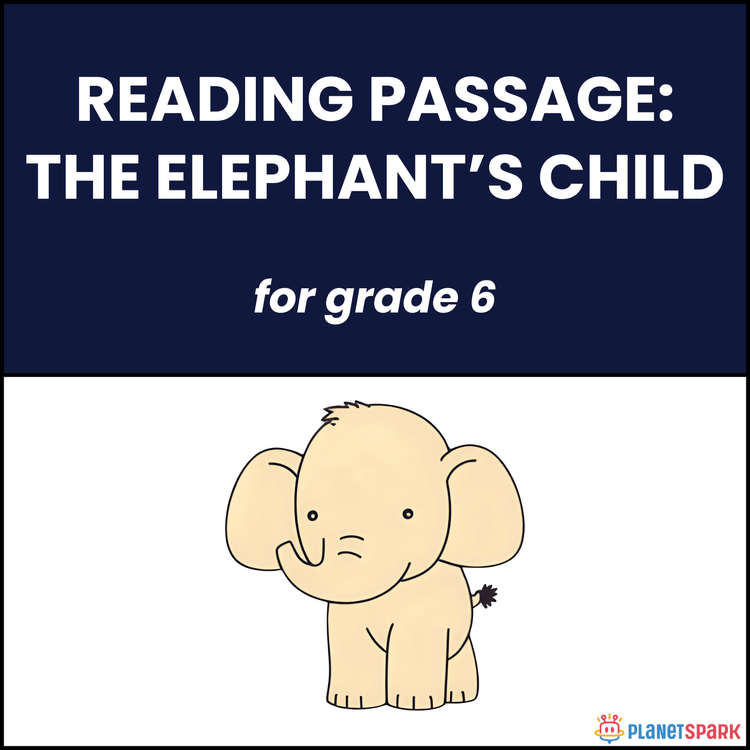

The Elephant’s Child (Kipling, abridged)
Class 6EnglishSpoken EnglishFree DownloadPDF
Neelam BooraVisit Profile
I’m an enthusiastic English educator at PlanetSpark, passionate about helping students build confidence and communicate effectively. I strive to make every session engaging, inspiring, and full of meaningful learning experiences.
Curiosity Leads to Discovery: The Elephant’s Child – Reading Comprehension for Class 6
This Grade 6 reading comprehension worksheet retells the delightful fable The Elephant’s Child, adapted from Rudyard Kipling’s “Just So Stories.” The tale follows a curious young elephant who can’t stop asking questions. His journey to the Limpopo River teaches him that curiosity can bring both danger and wisdom — and sometimes, wonderful surprises!
This engaging worksheet helps learners strengthen comprehension, reasoning, and vocabulary skills while exploring curiosity as a powerful learning trait. Each exercise encourages careful reading, moral reflection, and sentence-based responses aligned with middle-school learning goals.
Why Reading Comprehension Matters in Grammar?
Comprehension builds both curiosity and clarity in language. For Grade 6 learners, this topic is important because:
1. It connects questioning and critical thinking with structured expression.
2. It improves grammar through contextual understanding.
3. It teaches moral reflection through meaningful storytelling.
4. It enhances vocabulary and writing precision in creative responses.
What’s Inside This Worksheet?
🧠 Exercise 1 – Multiple Choice Questions
Students answer questions about why the elephant’s child went to the river, what the crocodile did, and who helped him escape.
✏️ Exercise 2 – Short Answer Questions
Learners describe what kind of elephant the child was, what happened to his nose, and what lesson he learned.
📚 Exercise 3 – Higher-Order Thinking & Vocabulary
Students reflect on curiosity, its benefits and risks, and find a synonym for curiosity → inquisitiveness.
✅ Answer Key (For Parents & Educators)
Exercise 1 – Choose the Correct Option
1. b) To see the crocodile and ask him a question
2. a) The crocodile caught his nose
3. d) A friendly bird who helped him pull
Exercise 2 – Short Answer Questions
1. He was very curious and full of questions.
2. The crocodile tried to pull his nose.
3. He got a long trunk after his adventure.
Exercise 3 – Critical Thinking & Vocabulary
1. Curiosity is good when used wisely.
2. It brought him danger but also a helpful gift.
3. We should use curiosity to learn carefully.
4. Synonym for “curiosity” – Inquisitiveness.
Help your child discover how curiosity sparks learning and growth through this imaginative fable!
Encourage questions, discovery, and confidence in reading comprehension today.
🔖Book a free trial!
Frequently Asked Questions
They explain imaginative origins with humor and creativity.
They preserve culture while improving vocabulary and reading flow.
It keeps readers engaged and strengthens context-based understanding.
